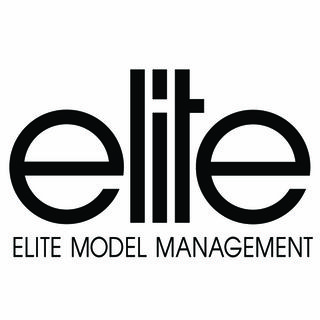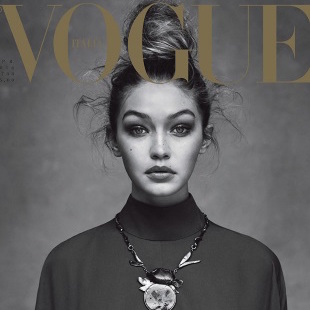After sitting down and talking with Julia for only a few minutes, it’s clear that she’s beyond a doubt a very down-to-earth and grounded woman – not to mention, incredibly witty. With a strong head on her shoulders, Julia’s realistic and honest perspective on her career and the industry is refreshing.
In part one of our interview, Julia talks about her start as a model, experience in overseas markets, and what its been like working as a model and now, a make-up artist (MUA) — with some great advice to give. Models, listen up!
TBM: How/when did you begin modelling?
JS: My first experience was with an agency from Toronto. I had met a photographer and he was going to send my photos to an agency whose models he regularly shot to see what they thought. I had kind of always wanted to be a model, but no one had ever said, “oh my god you have to be a model.” So I just kind of figured that it wasn’t for me. But he sent my photos to them and sure enough, they wanted to meet with me and my mom, and put a book together, and do all these test shoots — so that was exciting!
TBM: How old were you?
JS: I was 17 I think. But I had braces at the time. And people aren’t so into braces. Braces haven’t reached their fashion potential. So when I met with agents, they all said, “We’d like to see you with your braces off.” Which is understandable. So I went to university, but came into Toronto every once in a while if a great shoot came up or something. I can’t remember if I’d started booking any work by then, but I knew it was on the horizon. Then I was in drama class one day and I got a call from from my agent saying, “You can go to Shanghai this summer – yes or no?” … Yes! So I left my class and I was giddy. I was so excited. Then she told me that Natalia (TBM Co-Founder) was going to Shanghai too that summer and I was like – “Add to Facebook.” Instant friends. And that was towards the end of the year as well, so I was ready to get out of school. My parents were very supportive, and I had an amazing time in Shanghai.
TBM: So did you just keep modelling from then or did you go back to school?
JS: When I left for Shanghai I had planned on going back to school. It was just supposed to be a summer trip. But then I guess, my third month in, both Natalia and I called up our parents and said we needed to take a year off because it was so much fun and I was making money. And I never ended up going back to school. But I went for the next three years and I never spent more than a month in Toronto. After Shanghai I went to London, then back to Shanghai, London again, then South Africa, London again, then back to Shanghai. I was really into what I was doing and really happy with it, so I kind of dropped everything and that became my new life.
TBM: And your parents were cool with that?
JS: They were. I mean, they weren’t thrilled about my not going back to school, and I had to sell them on it, which is completely understandable. I wouldn’t want my child to stop. But I kind of knew that at that point I wanted to be a mua (make-up artist). So I explained to them that maybe I wasn’t meant for that guided path through university that everyone does. But maybe I could go to another school and learn a trade. So I showed them that I was seriously considering this career path that was viable and more suited to me.
TBM: So you were already thinking about modelling as a platform for another career?
JS: Yeah, I think I’ve always been pretty realistic about modelling. I’ve always known that I’m not going to be a supermodel. But I knew that I really liked this industry and there was something in there that I could pursue, whereas university just wasn’t making me happy. I wanted to be doing instead of reading.
71721_10151476694091786_291727573_n.jpeg
TBM: Lots of models enter the industry with stars in their eyes, but do you think having that more pragmatic, down-to-earth perspective helped you out?
JS: I mean, I don’t think it’s helped me in terms of my modelling career. Maybe those girls with the big aspirations, that’s what pushes them. I don’t know. But it’s helped me with the rest of my life and the rest of the careers I’ve had. Because I dropped a lot for modelling, but I never gave up on the things I really cared about.
TBM: So, are you focusing more on make-up artistry than on modelling right now?
JS: Yeah, I mean, I think I know that my modelling days are waning. So I thought that I could make a smooth transition from one to the other – which is happening now. I am still modelling, but not nearly as much as when I was travelling. My make up career is picking up. Right now I think it’s about 50/50. Maybe a bit more make-up than modelling, because I’m more in control of that. But eventually the modelling stuff will stop happening and I’ll have another career that I’ve worked my way into.
TBM: When did you figure out that you’d done what you needed or wanted or could do with modelling and it was time to make that transition?
JS: I think I was always in tune with what other people were thinking about my career. So much of a model’s career is outside their hands. And the interest was beginning to diminish a bit, and I wasn’t going to pester agents to get me more work if the work wasn’t there. So it was a gradual realization that this wasn’t a forever thing and I needed to set my sights on different goals.
It sort of sounds like a pessimistic way of looking at it, and I do encourage models to push harder and not let small blips or bad days discourage them. But I’ve always been pretty realistic. As great as it is to have dreams, it’s also great to have a plan.
TBM: You’ve been to China, South Africa, London. What was your favourite or weirdest market?
JS: They’re all very different. I had the best time in Shanghai. It was my first real modelling experience and in China models are treated like celebrities, which is pretty cool. The work was the hardest though, but it was the most consistent. And there were times where I’d be on photoshoots and after 10 hours I would think, I don’t want to do this anymore, this is stupid. But I’d go to sleep, wake up the next morning and do it all over again! And as much as many jobs are like that, I don’t really want to be in a job where you think like that all the time. When I was in London, I was a really commercial girl because everyone there is really edgy and they say the word “edgy” all the time. But when I was in South Africa, that’s a really commercial market, and I was the edgy one. And I think that’s been a big problem throughout my modelling career, in that, no one’s ever really been able to place me in one category.
TBM: People like boxes.
JS: Yeah, so I’d do a little bit of everything, but I didn’t do any one thing particularly well. So those two markets were very extreme and I didn’t fit very well into either of them. Shanghai’s where I really made money and fit it.
TBM: Well South Africa is very commercial. Did you work much? Or did you mostly shoot editorials?
JS: I got a lot of interest for doing fashion editorials that didn’t pay anything. Photographers would see this really skinny blond girl on the agency board and get really excited because that’s not what a lot of Cape Town models are like. So they’d want me to do all these super high fashion editorial shoots. Which is fun, but I also had rent to pay and you go to South Africa hoping to book a few television commercials and go home with a lot of money. And I didn’t go home with much. But it’s a gorgeous country. I’d like to go back to visit with some actual money in my pocket.
TBM: What was the biggest physical, emotional, or mental challenge for you as a model?
JS: Wussy as this sounds, being cold on a photoshoot is awful. And the times when I’ve been wearing summer dresses outside, frolicking around in -20 degree weather, is when it’s like torture. And it seems like no one should be made to do this job. Especially when you’re only there because your agent said, “It’s good to get in with this photographer.” And you know you’re not making any money standing in your knickers, it’s stupid.
screen-capture-2.png
TBM: Yeah, it’s one thing if you’re Kate Upton shooting Sports Illustrated in Antarctica, but I wouldn’t do that for free. Or for $200/day.
JS: Yeah, that’s for Sports Illustrated. But I don’t think they’re calling me anytime soon. And there’s a difference between doing something that’s good for your career, and something that people say is good for your career because it might just be good for their career. There’s a lot of weird trust issues that happen around that stuff.
TBM: So how did you get interested in make-up? You said you were interested in it fairly early on.
I’ve had an interest in make-up from a very young age but I didn’t really realize that it could be a career until I started modelling. For years, I was asking mua’s what they were doing on me and same with hair. So when my modelling career kind of came to a stand still, it just clicked and I thought, “Yeah, maybe I could do this as a career.” And sure enough, there happens to be a great school in Toronto. My parents had some money saved up for my education that they were willing to part with so it was just a very organic transition.
TBM: What was that kind of schooling like?
JS: I actually did a really short course at Complexions. I did a course on Fashion, which was only two months. Most people who go to that school go for a year and learn all kinds of crazy film stuff and special effects. But I kind of wanted to get it done quickly. I didn’t want to be in school for a year and not be able to do other things, like modelling. I also wanted to be able to make people look pretty, not look like monsters. So who knows, if I really get into film and TV and see that my career isn’t where it could be because I don’t have those skills, then I can go back and learn them. But until then, I’m very happy with the skill set that I bring to the table.
TBM: Were there ever certain things that make-up artists did that annoyed you as a model that you can see now from the other side?
JS: Yeah, I mean, there were times when I did not like what the mua was doing. Especially because I did have such a large interest in make-up artistry. And I’m sure this happens to a lot of models. It’s very hard to do your job to the best of your abilities when you’re unhappy with the way you look. And as a mua, I try to be quite cognisant of that. I want people to look and feel good because then the final result will turn out better for everyone.
TBM: Do you ever work with models who you find difficult?
JS: Some people try to stick themselves in where they don’t belong. But I try to reason with them and explain what I’m doing and why. I’m not going to flat-out say “that suggestion is stupid.” But I think models are looking at it from one perspective and muas are looking at it from another, but as long as everyone’s happy and comfortable I think that’s what matters most – which is really kind of the job of a mua: Make sure the client is happy, the model is happy, and that you’re happy with your work.
TBM: Are balancing those difficult sometimes?
JS: Sometimes. It depends on the set of course. Sometimes a photog’s hired a mua to make their dreams come to true and sometimes it’s completely collaborative and they’re open to creativity and suggestions. And that’s always nice.
TBM: What is your advice to models sitting in the make-up chair. How do you win the MUA’s heart and not piss them off?
JS: It’s a good connection to make. If a mua works with a model that they like and think is great, they’re going to one day be asked for the reference of a great model. And that can be valuable to you. I think it’s a good idea to talk to your mua about what they’re doing, especially if you’re unsure about it. They’ll be able to defend their choices and what you see in the mirror isn’t what the camera sees. The mua has a better idea of that than the model.
TBM: When you’re in the chair, should models talk to you or not?
JS: If you don’t talk, you’re only promoting the stereotype. Definitely talk. I actually find it very annoying when models are on their phones. Especially when you’re trying to do their make-up. It’s very irritating when their head keeps drifting down and makes my job more difficult than it has to be. Just remember that you’re on the clock, put the phone down, and be professional. Just like you would in any other professional scenario. If it’s a photo shoot, a casting, or a job interview, just try to be as professional as you can at all times.







Comments 0